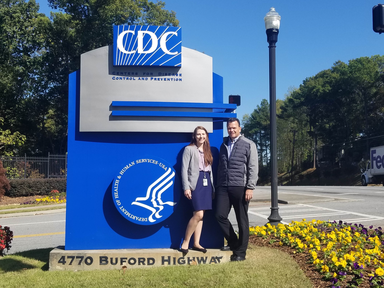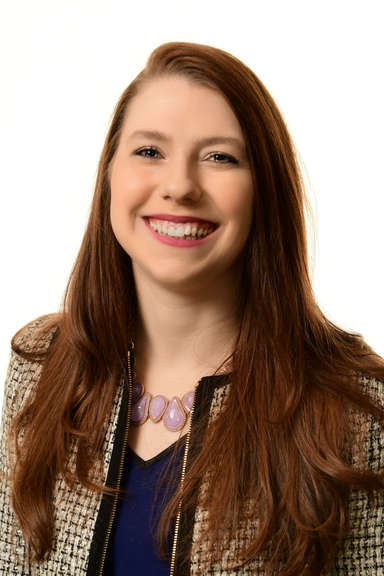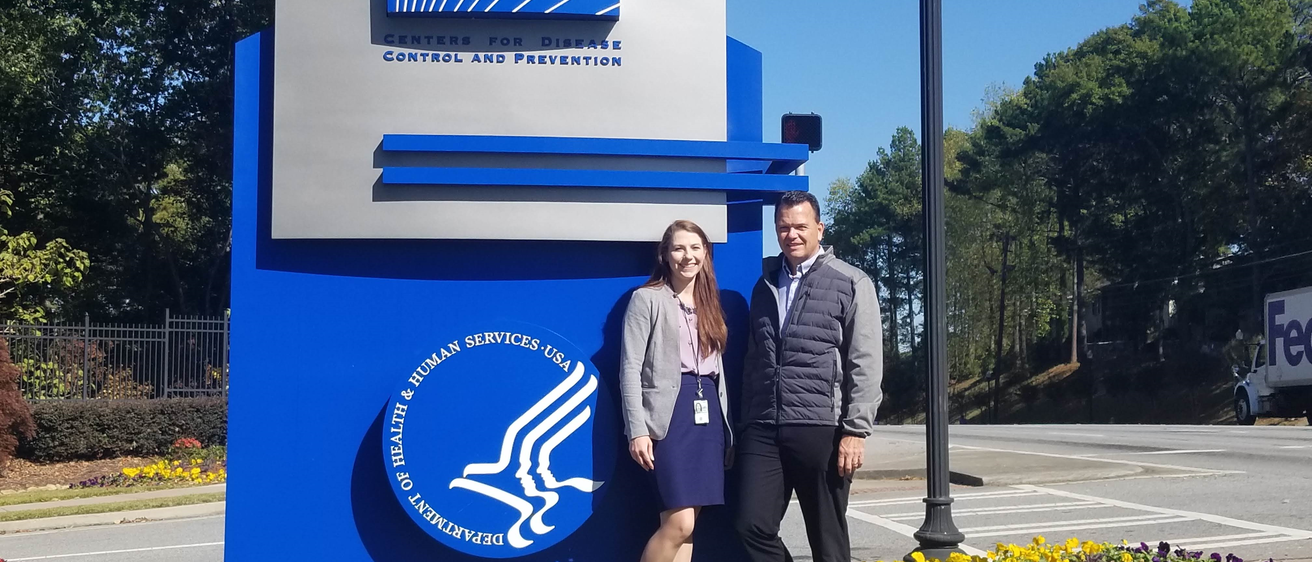
Last fall, before there were confirmed COVID-19 cases in the United States, P4 Nicole (Potter) Therrien completed a selective five-week rotation with a national agency that has often been in the news since then: the Centers for Disease Control and Prevention (CDC).
The soon-to-graduate Doctor of Pharmacy (PharmD) student said the agency is full of professionals who know how to work together and go out of their way to mentor up-and-comers. During her time at the Atlanta headquarters, she also learned about what drives her professionally.
Therrien spent her time at various CDC Atlanta campuses under the guidance of preceptor Jeff Durthaler, BSPh, MS, a consultant pharmacist who was working on heart disease and stroke prevention in a team environment focusing on applied research and translation. Her rotation was flexible and she was able to independently manage her schedule. She had some office-based days to work on projects and most days met with CDC staffers—including her preceptor when on the same campus—or attended lectures.

Each team member brings experiences and skills different from your own and different from others in their field.
“My preceptor gave me a list of about 30 to 35 people who work at the CDC, about half of which trained as pharmacists, that he recommended I set up meetings with during my time. Hearing about their experiences and career paths was exciting and a fantastic opportunity. I had the freedom to attend any lectures or talks at CDC while I was there, even if it did not pertain to pharmacy.”
Therrien was grateful for how readily she heard back from people on her preceptor’s list. “I was nervous about emailing the busy pharmacists and other professionals at CDC asking for some of their time…, but I received kind and enthusiastic responses. I found that most established professionals are willing and often thrilled to talk about their work and experiences.”
“During my CDC rotation, I also learned that when working on an interdisciplinary team, it can be extremely valuable to take some time to talk about each team member's experiences and strengths to determine what unique skills, abilities, or viewpoints each member brings to the team,” Therrien added. “When focused on completing daily tasks, it can be easy to forget that each team member brings experiences and skills different from your own and different from others in their field.”
Therrien walked away from the rotation with the conviction that come what may, she will find her way to a career that suits her well. Of the roughly 30 people she talked to about their career paths, “many … were not linear, but instead involved interesting twists and turns as opportunities arose,” she said. “I gained confidence in my vision of a 'non-linear' career path for myself.”
Finally, Therrien’s love for public health and pharmacy was strengthened during the rotation, but she did learn something about herself specifically. She said, “I loved thinking at the population level to improve health, but missed the patient care that was such a big part of my other rotations.”
